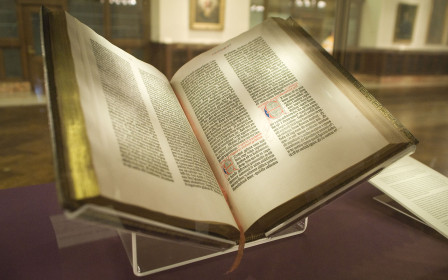The current Bible is an important collection of Judaeo-Christian writings from approximately 40 different authors over the course of about 1500 years.
I understand the desire to protect and place high value on the statements recorded by these various authors. But in doing that, we risk placing the cart before the horse.
Take for example the term "sola scriptura". It's a Latin term that means "scripture alone". It's a fairly recent term that was spawned out of the "Reformed" tradition that posits the Bible as the "sole infallible source" of authority for Christian faith and practice.
The problem is the "sacred writings" as we have them have been somewhat fluid over the centuries and millennia. And they are represented today in a wide variety of different versions, languages, and translations.
The first century church used the Septuagint out of necessity because it was the only Greek version of the Old Testament at that time.
In the years following the crucifixion and resurrection of Jesus, other letters began circulating and read by the early church. Though there was no widely agreed upon "canon" for the first three hundred years.
The New Testament canon didn't just appear. It developed, or evolved, over the course of the first 250-300 years of Christian history. No one particular person made the decision. The decision was not made at a church council. The particular writings that became those of the New Testament gradually came into focus. There are many good encyclopedia resources that describe the process. I like this concise paper from R.A. Baker (Ph.D., Ecclesiastical History):
The first "printed" Bible (the Gutenberg Bible) didn't appear until the 15th century. This Bible was printed in Latin and contained 73 books - not the traditional 66 books that make up the current Protestant Bible.

So when individuals or communities claim "sola scriptura", they are making some rather serious and bold assumptions about their current canon. Indirectly, they also infer that the role of the Holy Spirit is limited to "enlightening" individuals only through their reading of that canon. It's no wonder that many within "Reformed" communities tend strongly towards cessationism.
Jesus said in very plain terms:
You pore over the Scriptures because you presume that by them you possess eternal life. These are the very words that testify about Me, yet you refuse to come to Me to have life.
John 5:39-40
The collection of books referred to as the "Scriptures" are not the "thing" most important. They have value. They "testify" about many things. One of which being Jesus.
When Jesus makes statements like "Your word is truth", what do you think He was referring to? Our particular "canon" of Scripture at this moment in time?
Consider this statement by John at the opening of his gospel:
In the beginning was the Word, and the Word was with God, and the Word was God. He was with God in the beginning. Through Him all things were made, and without Him nothing was made that has been made. In Him was life, and that life was the light of men. The Light shines in the darkness, and the darkness has not overcome it.
John 1:1-5
Jesus was the embodiment of the Word of God. When He said:
“It is written, “‘Man shall not live by bread alone, but by every word that comes from the mouth of God.’”
Matt 4:4
Was He referring to the "canon" of Scripture of His day? Or was it the "words that come from the mouth of God" that led to the canon?
There is a difference!

